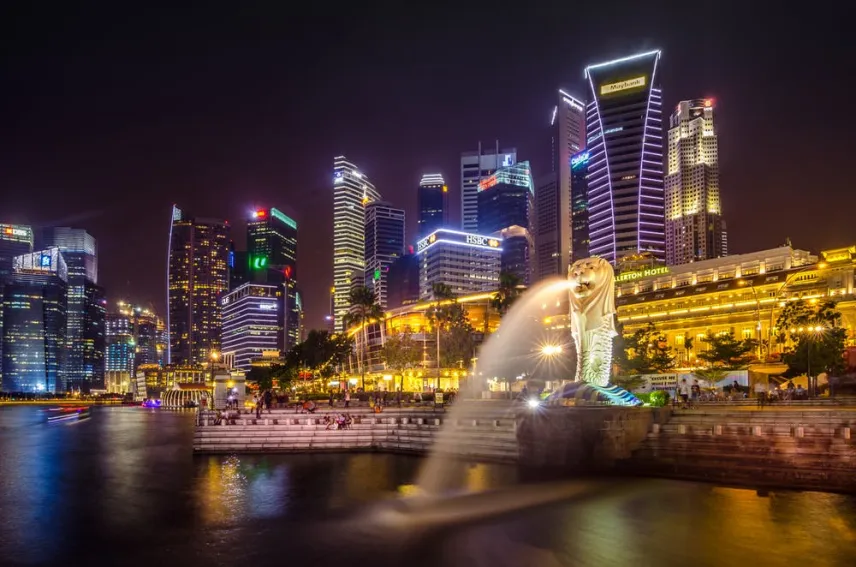
Falling oil prices exacerbate asset risks in Asian banks
The downturn has exposed issues in governance and operating practices.
The sharp downturn in oil prices is piling up to the asset risks for banks in Singapore, Malaysia, Japan and South Korea, which are already facing problems posed by the coronavirus outbreak, says Moody’s Investors Service in a report.
Banks in these markets have the largest exposures to borrowers affected by changes in oil prices in Asia. With oil prices expected to remain low throughout 2020, stress is expected to increase across companies in the oil and gas industry.
Singapore banks have extensively provisioned for exposures in the riskiest oil and gas companies, with loans to oil traders now only making up 1% of DBS, OCBC, and UOB’s loans. However, this still presents a vulnerability, as highlighted by the default of Hin Leong Trading in April 2020.
The big three banks’ exposure to Hin Leong make up 3-5% of their pre-provision income for 2019. Whilst this is a manageable amount, the collapse of oil prices has exposed regulatory issues, noted Moody’s.
“Whilst the largest oil traders have well established risk management procedures and controls, the collapse in the oil price revealed issues in the governance and operating practices of some trading companies that may have been going on undetected for some time,” the report said.
For Japan’s three megabanks—Mitsubishi UFJ Financial Group, Sumitomo Mitsui Financial Group, and Mizuho Financial Group—the greatest risk stems from exposures to North American independent oil sand and shale oil exploration and production companies. These companies' financials will worsen due to low oil prices, leading to a deterioration of asset quality and increases in credit costs at the three banks.
Upstream oil companies are the most directly affected by the oil downturn. Exposures to non-Japanese upstream and related companies totalled approximately 28% of the megabanks' total oil and gas exposures at the end of March 2020.
The Japanese regional banks' exposures to oil and gas companies are limited.
Meanwhile, South Korean banks are indirectly exposed to the impact of low oil prices through their lending to shipbuilding and construction sectors. The low oil prices can result in reductions in orders for oil or LNG tankers that Korean shipbuilders have expertise in, which in turn will dampen prospects for a sector that otherwise should benefit from increasing demand for new types of vessels meeting tougher requirements for sulfur emissions, according to Moody’s.
Further, prolonged global economic slowdown may also depress demands for container and dry bulk ships as the global trade volume declines.
Orders for Korean shipbuilders already declined 17.7% in 2019 from the prior year, according to data from the Korea Offshore & Shipbuilding Association, due to increased uncertainty surrounding the US-China trade war.
Malaysian banks’ oil and gas exposures also make them vulnerable to impairments as low prices strain financials at borrowers.
“Amongst all listed companies in Malaysia, the oil and gas sector has the largest share of businesses with interest coverage ratios of two or less, although the total amount of debt held by such weak borrowers in nominal terms decreased to 65% of the sector’s total debt at the end of June 2019 from 75% at the end of 2018 as companies reduced leverage,” Moody’s further noted.
Photo courtesy of Pexels.com






![Lorem Ipsum [ABF 1]](https://cmg-qa.s3.ap-southeast-1.amazonaws.com/s3fs-public/styles/exclusive_featured_article/public/2025-03/a_hand_pointing_to_a_futuristic_technology_5b87c9d0e3_1.png.webp?itok=2w0y1WhS)


![Cross Domain [Manu + SBR + ABF + ABR + FMCG + HBR + ]](https://cmg-qa.s3.ap-southeast-1.amazonaws.com/s3fs-public/styles/exclusive_featured_article/public/2025-01/earth-3537401_1920_4.jpg.webp?itok=WaRpTJwE)








 Advertise
Advertise

